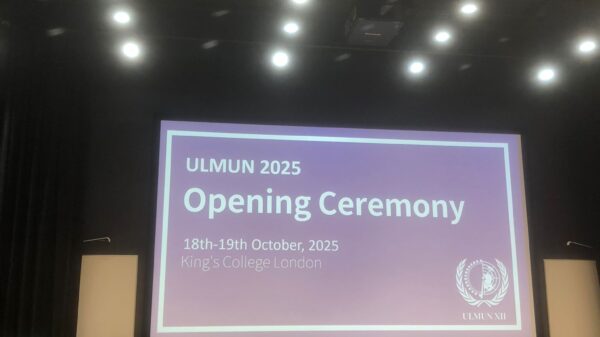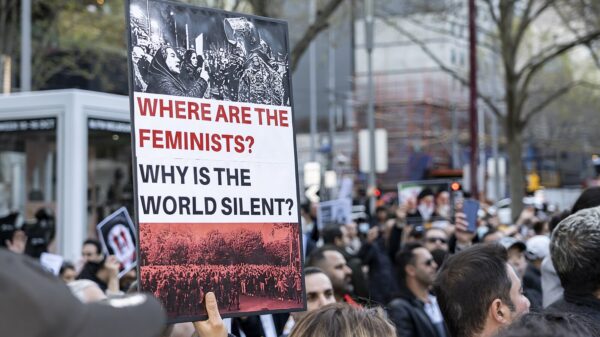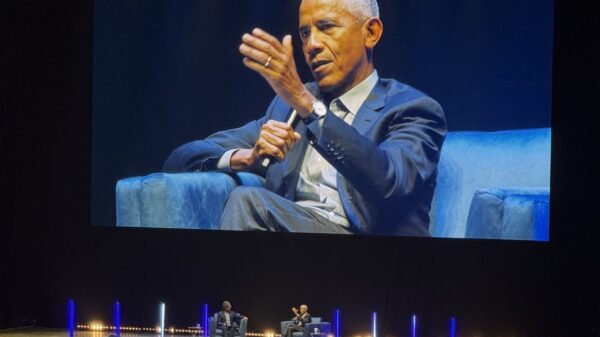Staff Writer Kaya Newhagen explores the sharp end of gender politics.
Young men and women are increasingly divided on feminism, and the hard-won gains of equality may no longer be guaranteed. The meaning and perception of feminism among Gen Z is being reshaped and polarised by social media, algorithms and influencers, resulting in a chaotic and fragmented understanding where empowerment, backlash and profit intertwine.
Recent research helps explain this divide: A global survey carried out by Ipsos UK and King’s own Global Institute for Women’s Leadership employed nearly 24,000 people across 30 countries. Their research found that an increasing amount of people globally feel that initiatives to promote women’s rights “have gone far enough”. Furthermore, 57% of Gen Z males believe feminism has gone so far that men are now suffering discrimination. While 53% of Gen Z women identified as feminist, only 32% of Gen Z men identified as feminists which is just marginally higher than past generations. All in all the study found that compared to past generations Gen Z men and women are the most divided on gender equality.
Another study, Safer Scrolling, conducted by University College London and University of Kent, aimed to examine how social media algorithms contribute to the rise in misogynistic content among users. The study analysed over 1,000 TikTok videos and conducted extensive interviews which resulted in the finding that after just five days of use, the amount of misogynistic content on users’ ‘For You’ pages increased fourfold. The longer someone uses the platform, the more extreme ideological material it promotes.
Growing attention to the manosphere and to its notorious figures like Andrew Tate, a British-American online influencer with over 10 million followers on X, point to a rise in polarising thought groups. The release of the Emmy winning mini-series ‘Adolescence’, which highlights the impact on young boys, has brought the debate further into public discourse.
Other broader online trends point to a shift in attitudes and retreat towards conservative femininity, including the rise of ‘trad wives’, female influencers who promote domestic lifestyles. While the trend categorises women who promote ‘traditional values’, critics note how the content creation aspect of their business model contradicts the role of a traditional ‘homemaker’. Furthermore, the romanticisation of ‘traditional values’ online seems to stand in stark contrast—or perhaps as a reaction—to the ‘Girl Boss’ era that reigned on social media not too long ago.
However, there is another extreme side to this debate, when empowerment meets exploitation. OnlyFans, a British-based adult content streaming platform has changed the game for pornographic business models. It operates as a subscription based model where 80% of proceeds go to the creators while OnlyFans pockets 20%, with a 1.3 billion dollar revenue. Supporters say OnlyFans lets women profit on their own terms, but critics argue it’s just the same old exploitation dressed up as empowerment.
Bonnie Blue is a notorious name associated with Only Fans and sex work in general. The British 26-year-old has been recognised for her business approach to content creation as well as her controversial extremism. Most notably, her claim of sleeping with 1,057 men in 12 hours and other stunts have gained the internet’s attention. Bonnie Blue is often referenced in topical debates in regard to gender politics, sex worker empowerment and modern day feminism.
Recently, Blue went on a ‘Barely Legal’ tour visiting numerous universities for Freshers’ Week. The tour involved her ‘Bang Bus’ and sparked major controversy over her intentions and its legality. Many students and staff criticised her and universities were quick to state they had not issued permission for her presence on campuses. However, she also managed to rally crowds, attract social media attention and distribute merchandise along the way. This begs the question of what feminism means today, and how the digital age is reshaping the long-running debate over sex work’s place within it. In an interview with NewsWeek, Blue said “I wouldn’t say I’m not a feminist” while Andrew Tate has stated “Bonnie is the end result of feminism”. The exchange highlights feminism’s current identity crises. What once was a movement for equality has splintered into a transactional marketplace. To some, Blue represents women reclaiming control over their image and financial autonomy; to others, she embodies how capitalism and social media have commodified feminism as something commercial rather than collective.
Whether it’s on OnlyFans, across social media, or on university campuses, gender politics are being contested and reshaped. Gen Z is grappling with what feminism means today, and where that leaves the debate. In this digital age, more voices and more conflicting agendas than ever are shaping the conversation, creating both noise and uncertainty. Yet one thing remains clear: the fight over what feminism means isn’t fading—it’s evolving, reshaping how a generation understands equality and blurring the line between online discourse and real-world controversy.
For more comment analysis, click here.
















